The Yoorrook Justice Commission has today released an issues paper seeking submissions on the economic life of First Peoples, including economic injustice and opportunities for economic development.
The Commission’s inquiry into economic prosperity will develop a record of the contemporary economic status and circumstances of First Peoples in Victoria, identify the source and breadth of injustice across the different dimensions of economic life, and suggest solutions.
Data shows that First Peoples experience lower levels of economic wellbeing. In 2021 the median weekly personal income for the general population was 30 percent higher than it was for First Peoples.
Lower incomes are exacerbated by inequity in economic opportunities including lower levels of labour market activity and business ownership.
Commissioners Travis Lovett and Maggie Walter are leading Yoorrook’s inquiry into economic life.
All Victorians are invited to make a submission to Yoorrook in relation to the issues paper, or other systemic injustices experienced by First Peoples.
Commissioner Lovett said:
“For thousands of years, First Peoples had a sustainable economic system and an unbroken relationship with the land, water, and resources. This was decimated by colonisation. European colonisers and their governments took First Peoples’ land, forced us off country, restricted our movement and destroyed our traditional economic systems.
“Our economic life and bond with the land was broken, ending traditional ways of life. First Peoples continue our struggle to recover from 200 years of economic disadvantage.
“Yoorrook’s inquiry into economic life is looking at the historic and ongoing economic barriers faced by First Peoples.”
Commissioner Walter said:
“First Peoples are much more likely to live in poverty than non-Indigenous Victorians, and this poverty is often intergenerational. Further, early submissions to Yoorrook on this topic indicate that despite initiatives such as Closing the Gap and various state government strategies and commitments, First Peoples in Victoria continue to experience discriminatory treatment in employment, education and access to capital.
“Yoorrook is calling for submissions to better understand the economic barriers First Peoples have faced and continue to face, and to identify solutions to achieve economic justice so that all Victorians can thrive.”
The deadline to make a submission on economic life is 27 March 2024. Submissions can be made at www.yoorrookjusticecommission.org.au/submissions. Support is available for First Peoples considering making a submission, including free, independent legal advice and wellbeing support.
In Victoria in 2021:
- the proportion of 25–64-year-old Aboriginal and Torres Strait Islander people in employment was 52.9 per cent, compared with 62 per cent for non-Indigenous people.
- the most common occupations held by First Nations people in Victoria are Professionals (16.8 per cent), Community and Personal Service Workers (16.2 per cent), and Technicians and Trades Workers (14.1 per cent).
- Comparatively, the most common occupations across Victoria are Professionals (25 per cent), Managers (14 per cent), and Technicians and Trades Workers (12.6 per cent).
- 10.1 per cent of First Nations People in Victoria are Managers, compared to 14 per cent statewide.
- The median weekly personal income for First Nations people in Victoria was $619, compared with $803 for the State of Victoria. Similarly, the median weekly income household for First Nations households in Victoria was $1,565, compared with $1,759 for the State of Victoria.
Share this Media Release
